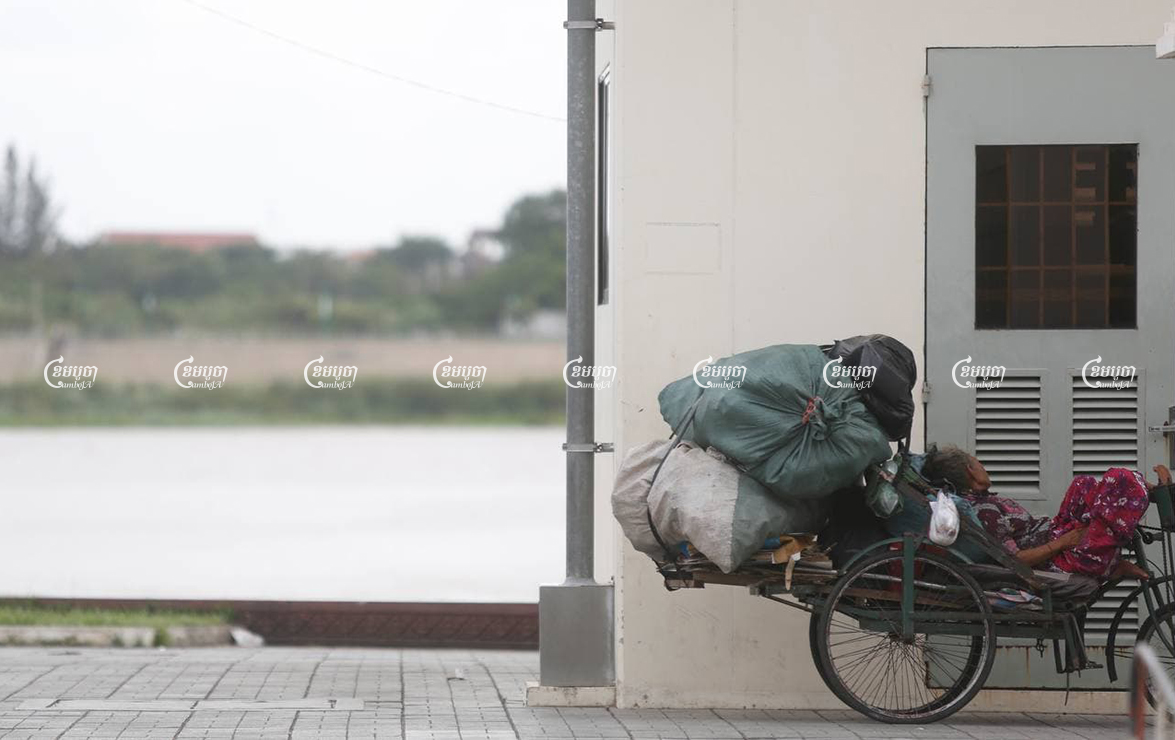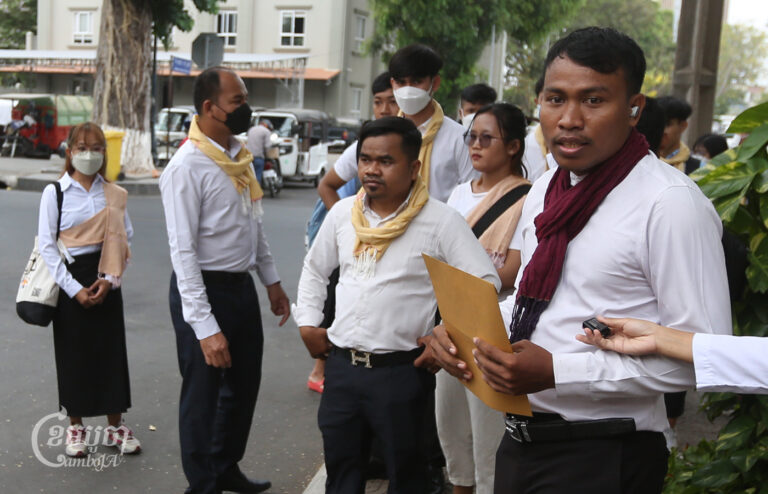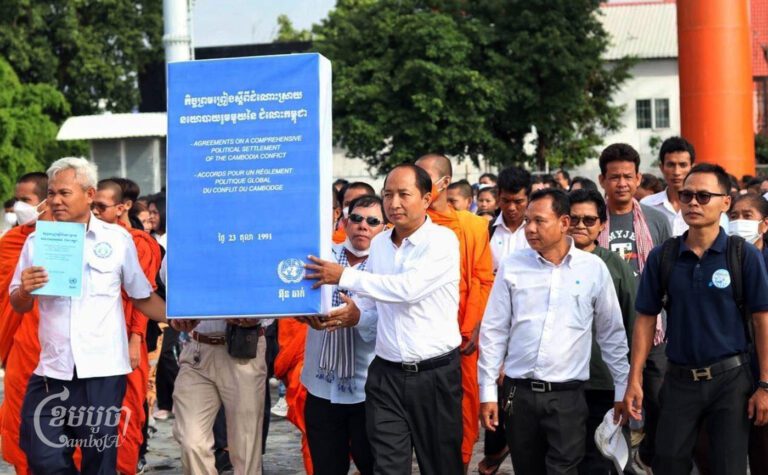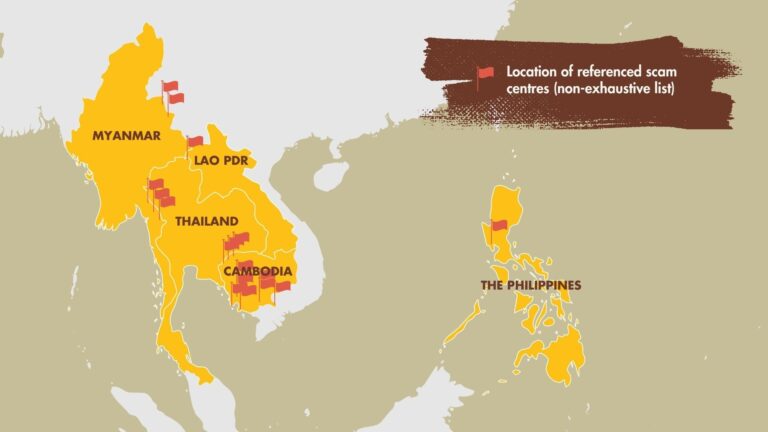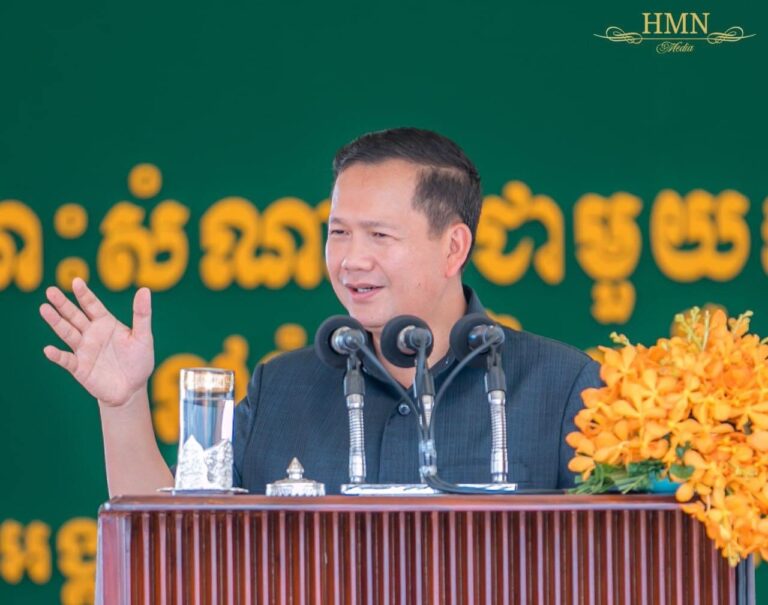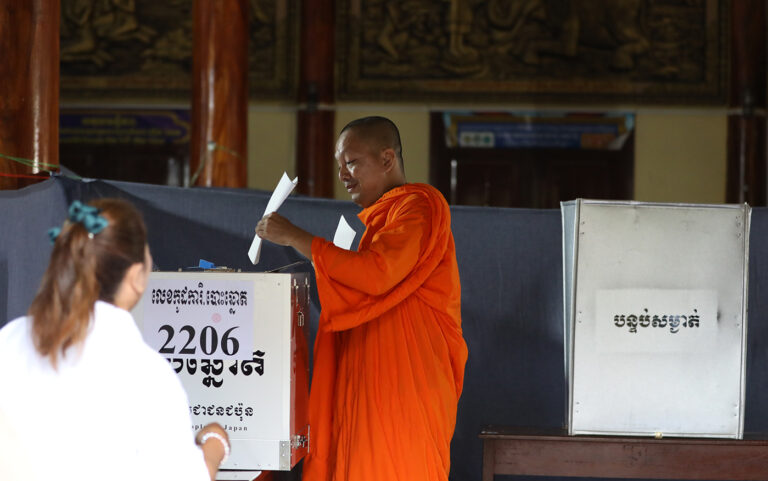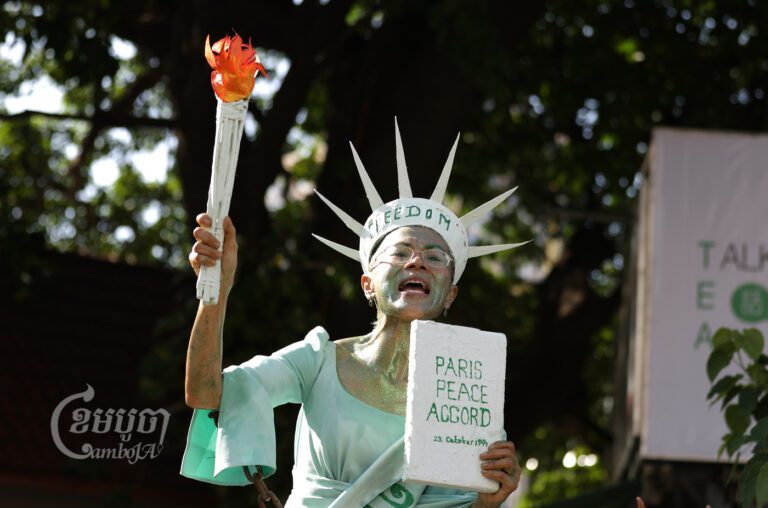Two UN human rights experts have expressed concern over Cambodia’s draft disability law saying it fails to meet international norms.
Nearly two years in the make, the draft law builds on the 2009 Law on the Protection and Promotion of the Rights of Persons with Disabilities. But critics, including Human Rights Watch, say it fails to adequately outline the responsibilities of the state and entrenches discriminatory language and provisions, with worryingly vague language around punishment for noncompliance.
In a joint letter released Tuesday and dated April 22, the UN envoy to Cambodia and the special rapporteur on the rights of persons with disabilities recommend that the government make further changes to the bill.
“We are concerned that the current draft of the new legislation is not in full compliance with international human rights law. We understand that a number of inputs received by stakeholders and partners, including United Nations agencies and civil society, have not been taken onboard by the DAC,” said the joint letter.
“We are concerned, in particular, about the fact that the draft law does not include a number of rights recognized by the CRPD [Convention on the Rights of Persons with Disabilities], nor does it articulate the State’s responsibilities as duty bearer to implement such rights.”
Among other criticisms, the letter noted that a section on fines “appears to unevenly criminalize a certain range of behaviors and contains language that may be too vague and may affect the practical application of the law and even have adverse effects, discouraging those willing to support persons with disabilities. For example, we are concerned that the currently drafted provision criminalizing the wrong translation of contents spoken in sign language, contained in article 67, without requiring malicious intent, could make accidental misinterpretation punishable, and discourage people from using sign language with persons who are deaf.”
New York-based Human Rights Watch released a statement on Tuesday criticizing the law on many of the same grounds and calling for its revision.
“If the draft law is revised to meet international standards, the government would be taking a monumental step toward ensuring equal rights and strong social protections for the large number of people in Cambodia who have disabilities,” said Kriti Sharma, disability rights expert at Human Rights Watch.
“Cambodia has long needed a disability rights law, but the proposed bill needs to drop stigmatizing language and to support the right to be fully included in society, not marginalized,” she said.
Cambodia signed the UN convention in 2012, and began revising its law in consultation with a range of stakeholders to bring it in line with the CRPD, An Sokkhoeurn, Cambodia’s UN ambassador and permanent representative wrote in a rebuttal. “The overwhelming majority of them are satisfied with this open, inclusive and transparent approach that the government has taken and the wide-ranging substance of the draft law,” he wrote. Though he did not respond to the allegations of vague language, he defended the use of penalties saying: “A law must prescribe sanctions for non-compliance if we are to ensure its effective enforcement.”
Vong Sauth, Minister of Social Affairs, Veterans and Youth Rehabilitation said the bill is still in draft form and changes can yet be made.
“Because of COVID-19 and the government’s lockdown, we could not do anything on the draft, and we do not deny any recommendations, but we also need to examine our actual situation. I have asked the technical staff to mediate and continue to consult relevant parties because it is not over yet,” he said.
Secretary of state at the Ministry of Social Affairs, Em Chan Makara, said the government has spent almost two years discussing the draft and sought comprehensive input from civil society and people with disabilities to comply with international law.
“We write the law to serve the benefit of the disabled, not to kill them, this law serves them from the time they wake up to the time they go to bed,” he said.
According to Chan Makara, currently there are more than 500,000 people with disabilities in the country.
Executive Director of Cambodian Disable People’s Organization, Mak Monika, who joined consultations on the bill said that disabled people are a vulnerable group and they also face discrimination at workplaces.
“Some employers still discriminate against people with disabilities in terms of assignment, they still think that people with disabilities are incompetent or unable to work independently, especially in the private sector,” she said.
Monika said the immediate assistance needs to be included in the draft to support people with disabilities in the event of a crisis like COVID-19.
“I am not sure if such an immediate solution is included in this draft, but we want an immediate solution to get government support because in the future we do not know what the disaster will be,” she said. (Additional reporting by Khuon Narim)


